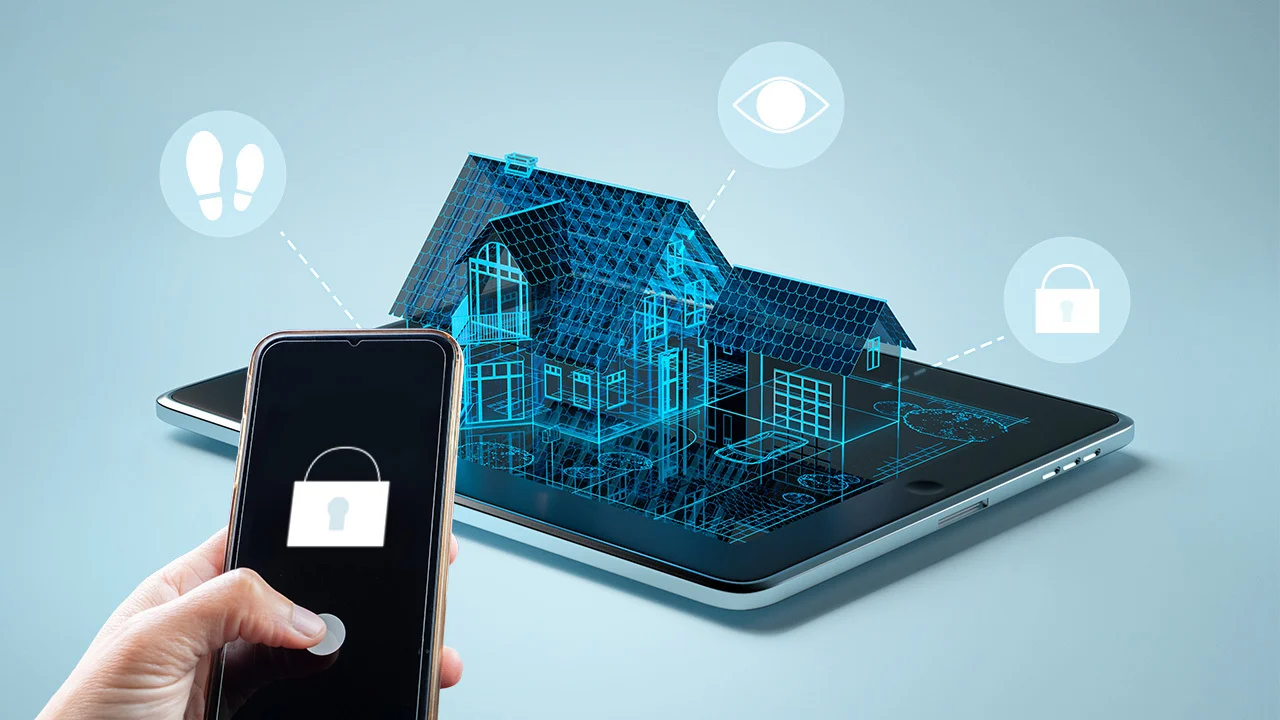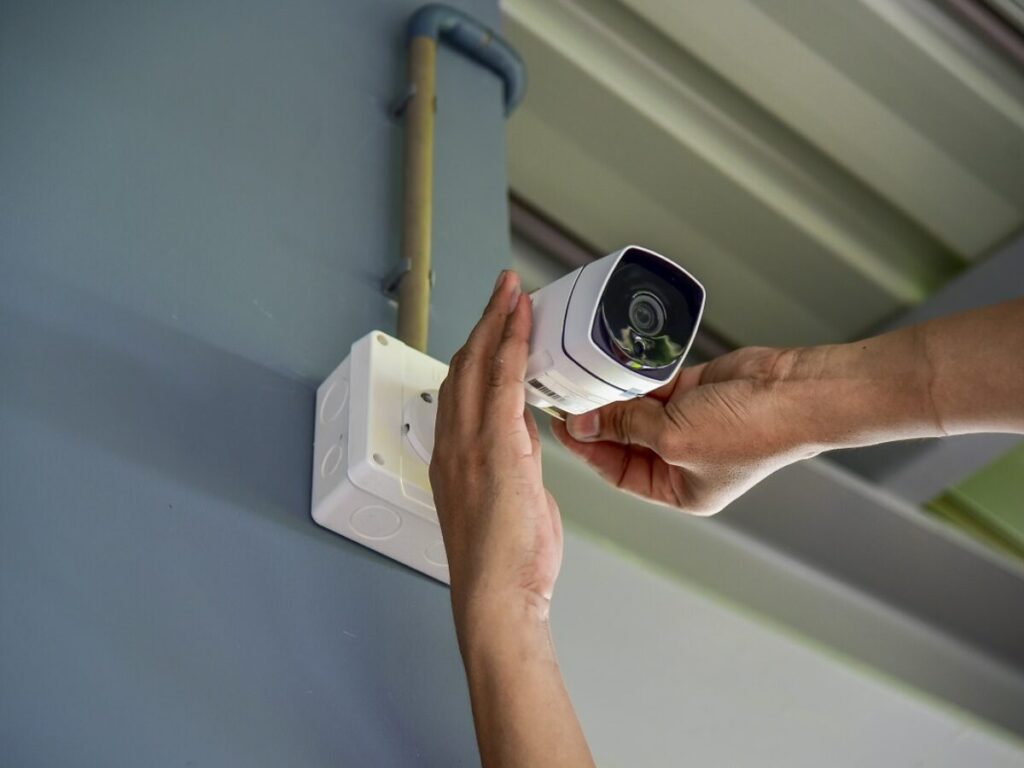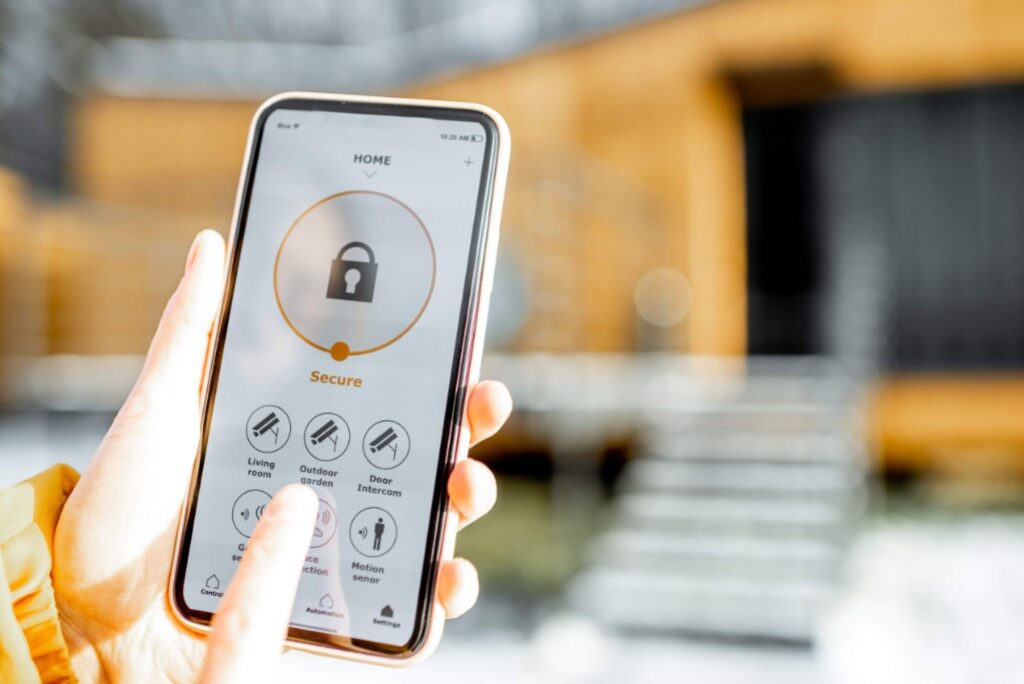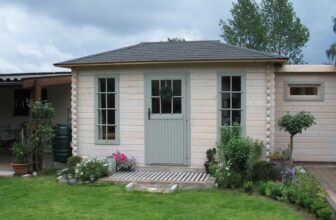
In today’s world, where security concerns are ever-present, alarm systems serve as an essential line of defense for our homes and businesses. However, the impact of these systems goes beyond their practical function; they also shape our perception of safety in profound ways.
But how exactly does the alarm system work its magic? Let’s explore the cool psychology behind security systems and how they influence our sense of security at home.
Table of Contents
Key Takeaways
- Security is a dual concept encompassing both factual safety and individual perceptions.
- Survey data from incarcerated burglars underscore the significance of visible security measures, such as alarm systems, in deterring break-ins.
- Visible alarm systems serve as potent deterrents to burglars due to their signaling of monitored premises and potential confrontation.
Behind Security Perceptions
Bruce Schneier, a privacy specialist and the author of “The Psychology of Security”, says security is like two sides of a coin: how safe you feel and how safe you are. To make it easier to comprehend:
- The “real” side ─ This is based on facts and figures. It considers how likely something bad will happen (like a break-in) and how well things like alarms can stop it.
- The “feeling” side ─ This is all about your worries. Some people might be super scared of getting robbed, while others might not be too fazed. The same goes for things like airport security – some people feel safer with the extra checks, while others might not find it makes much difference.
Canada’s Burglary Statistics
A survey of burglars in prison shows that security system signs were seen as significant deterrents during home break-in considerations. While not as effective as actual security devices, such as CCTV cameras or alarm systems, signs still influence decisions.
Over 80% of surveyed burglars checked for active security systems before attempting a break-in, and more than half would choose another target if signs indicated the presence of such systems. To give you more figures, here’s a simplified report from Statista about burglary incidents in Canada from 2015-2022:
| Year | Number of Burglaries |
| 2022 | 132,897 |
| 2021 | 125,914 |
| 2020 | 138,067 |
| 2019 | 161,542 |
| 2018 | 160,329 |
| 2017 | 159,626 |
| 2016 | 160,230 |
| 2015 | 159,630 |
Visible vs. Concealed Alarms

Source: smssecurity.com.au
Alarm systems come in two main choices ─ visible alarms or hidden alarms.
Visible Alarms ─ Good at Scaring Off Burglars
- The downside for burglars ─ They see the alarm and know they’re more likely to get caught by you or a security company.
- Time waster ─ Burglars might have to figure out how to disable the alarm, making them less likely to target your home.
- Fear factor ─ The alarm might make them think you’re ready to confront them, which can scare them away.
- Mind games ─ Just seeing the flashing lights can make burglars nervous and give up on breaking in.
Things to Consider About Visible Alarms
- Target practice ─ In some cases, a super obvious alarm might attract burglars who are good at bypassing them.
- Not so stylish ─ A visible alarm system might not be the best choice if you like a clean look for your home.
However, there’s a paradoxical effect regarding the visibility of alarms. Some burglars may interpret visible alarms as indicators of valuable items inside, potentially making the home a more enticing target. This underscores the importance of a comprehensive security strategy encompassing visible alarms and other protective measures like secure doors and windows, well-lit exteriors, and surveillance cameras.
Why We Feel Safer with Alarm Systems

Source: ad-transit.com
Think of your home as your castle. Good alarm systems act like loyal guards, constantly vigilant against intruders. Here’s a breakdown of the psychological factors at play:
- Deterrence ─ The flashing lights and sirens of an alarm system are a big red flag to potential burglars. Knowing they’ll be met with a noisy deterrent discourages them from targeting your home in the first place. Studies show that visible security systems can reduce break-in attempts by up to 80%.
- Peace of mind ─ Even if a break-in attempt happens, functioning alarm systems provide a sense of control. The knowledge that authorities will be alerted and the intruder will likely be scared off brings peace of mind, especially when you’re away from home.
- Security perception ─ Alarm systems become a security blanket. Just seeing the keypad or hearing the familiar beeps can trigger a feeling of safety, even if a break-in is statistically unlikely.
The Effectiveness of Security Devices
A 2017 study, “The Effectiveness of Burglary Security Devices” looked at the effectiveness of different security devices against burglary. Here’s what the research found:
| Individual devices | Having any security device is better than none, but some are more effective than others. External lights seem to be the best single deterrent. |
| Multiple devices | Combining security devices is even better. The best combo (for both attempts and break-ins) is window & door locks with either external lights or security chains. Surprisingly, adding more than 4 devices can actually be less effective. |
| Cost-effectiveness | While more research is needed, window & door locks with external lights/security chains seem like a good balance between affordability and protection. |
And based on the study, here’s what we recommend for property owners:
- If you can only afford one device, get external lights with motion sensors.
- If you can afford two, add window locks to the external lights.
- If you can afford more, consider window & door locks with either external lights or security chains.
Feel Safe with an Alarm System
Security is all about feeling good in your own home. Alarm systems give us a great psychological boost, but true peace of mind comes from a layered approach. As technology advances, alarm systems will undoubtedly remain at the forefront of safeguarding our homes and businesses, ensuring a safer and more secure environment.
So, take the first step towards enhancing your security today with MAG Smart Security. Our range of advanced alarm systems offers cutting-edge technology and peace of mind, ensuring your home or business remains protected.
Frequently Asked Questions
What types of alarm systems should you opt for?
The best house alarm systems to consider should have the following features:
- Quick plug-and-play setup in under 5 minutes
- Operates via an app or key fob
- No fixtures are needed, ideal for rental accommodations
- Covers all doors, windows, integral garages, and conservatories
- ‘Learning Mode’ for easily fitting doors or windows
- Panic button for quick activation
- Bell box and camera integration
How important are security signages?
Security signs are essential to maximize the deterrent effect of visible house alarms. They indicate the presence of a security system, reinforcing that your home is protected. Even without a sophisticated alarm system, using these signs strategically can create the illusion of security.
Are alarm systems worth it?
Absolutely. They not only ensure faster police response times and increase the likelihood of catching and prosecuting criminals but also serve as effective deterrents, potentially preventing burglaries altogether.







